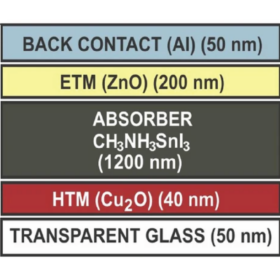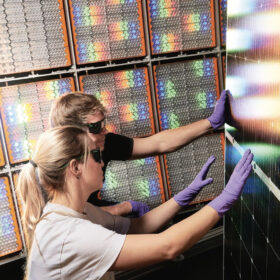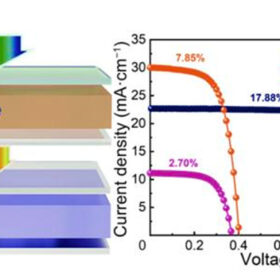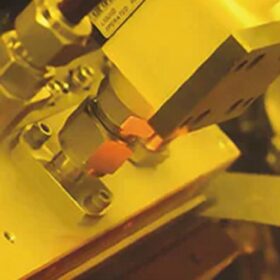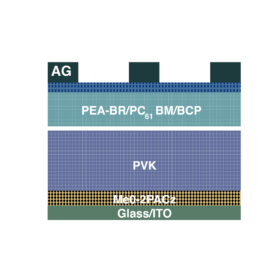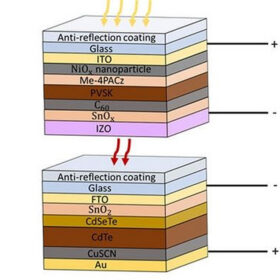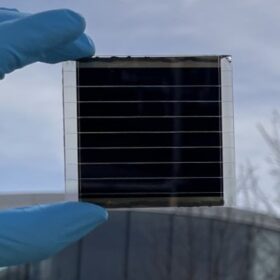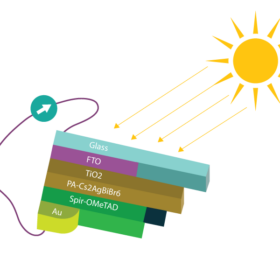Lead-free inverted perovskite solar cells without transparent conducting oxides may achieve 30% efficiency
Researchers in Nigeria have proposed to build inverted perovskite solar cells exclusively with all-inorganic transport materials and a lead-free perovksite absorber. Through a series of simulations, they showed these device may achieve efficiencies over 30% with low production costs.
Shedding light on tandem perovskite solar cell progress
Perovskite PV devices are set to become the next big thing in solar with market analysts at S&P Global Commodity Insights predicting 1 GW of production by the end of 2024, rising to 6 GW in 2025. Perovskite tandem devices are at the front of the queue for commercialization but their characterization presents technical challenges.
First attempt to build perovskite-antimony selenide tandem solar cell delivers 20.58% efficiency
Scientists in China built for the first time a four-terminal tandem perovskite cell with a 17.88%-efficient top perovskite device and a 7.85%-efficient bottom antimony selenide bottom cell. The key features of the tandem cell are the transparent conducting electrode used to improve the spectral response of the top cell and the “double” electron transport layer of the antimony selenide cell.
Toray Engineering offers coating equipment for perovskite PV module manufacturing
The Japanese industrial technology supplier is shipping coating tools for perovskite solar panels with dimensions up to 1,000 mm × 2,000 mm. The company will also offer soon a support for 2,400 mm ×1,200 mm sizes.
Inverted perovskite solar cell based on self-assembled monolayer achieves 24.38% efficiency
Researchers in China have designed an inverted perovskite solar cell with a new strategy aimed to optimize the cell’s bottom region. The proposed cell was treated with two molecules known as 2-mercaptoimidazole and 2-mercaptobenzimidazole and was based on a hole transport layer relying on a self-assembled monolayer.
Carbon-based perovskite solar cell without hole transport layer achieves 14.15% efficiency
Researchers in China have outlined a new surface engineering strategy to build low-cost solar cells without a hole transport layer. The devices were treated with benzoylcholine halide to reduce non-radiation recombination and achieved remarkable efficiency and stability.
All-perovskite tandem PV cell based on carboranes hits 27.2% efficiency
Researchers have developed a thermal regulation strategy to improve the performance of inverted tin-lead perovskite tech for all-perovskite tandem solar cells. It has an efficiency of 23.4% and contributed to a 27.2% efficiency in a tandem cell while ensuring stability.
U.S. scientists demonstrate 25%-efficient perovskite-cadmium tandem solar cell
The researchers say the cell has a top perovskite cell with a transparent back contact made of indium zinc oxide and a commercially established cadmium telluride bottom device. They claim the champion tandem cell has the potential to reach a 30% efficiency.
EPFL unveils perovskite solar module with record-breaking efficiency of 23.3%
The solar modules are based on the record-breaking 25.32%-efficient 2D/3D perovskite solar cells that the Ecole Polytechnique Fédérale de Lausanne unveiled in July 2023. The panel has an aperture area of 27.22 cm2, and were encapsulated by glass-glass encapsulation technology combined with an edge seal of the module under UV light illumination.
New doping strategy increases lead-free perovskite solar cell efficiency
An international research group has developed a solar cell based on a lead-free perovskite material known as Cs2AgBiBr6. The cell’s absorber was doped with trans-polyacetylene, which reportedly helped the device to improve its efficiency by more than 20%.
